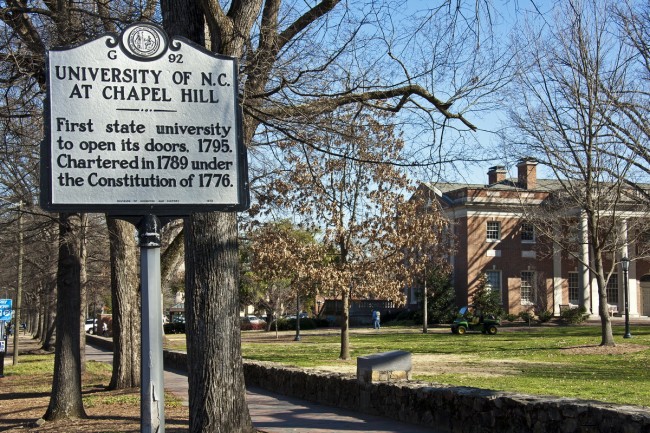Studies show that kids who grow up in poverty tend to have a much harder time succeeding in school. The effects of poverty are widespread and long-term – and our efforts to shrink the “achievement gap” have been stymied in part by the persistent presence of poverty.
But there’s always hope.
A new study from UNC’s Frank Porter Graham Child Development Institute has found that a single year of “high-quality early education and care” can produce significant benefits for infants and toddlers living in poverty.
The study focused on a program called Educare, which works with pre-K students as young as six weeks old. It found that children who went through the program showed significant improvement in language skills – and they also had fewer behavioral issues and more positive interactions with their parents as well.
Read more about the study here.
FPG senior research scientists Noreen Yazejian and Donna Bryant were the principal investigators on the study. They say kids in the Educare program showed greater improvement than students in other pre-K programs.
Noreen Yazejian spoke with WCHL’s Aaron Keck.
Yazejian and Bryant’s study did not look at long-term effects, so it’s not clear whether Educare students continue to achieve at higher levels later in life. But a different FPG study, the “Abecedarian Project,” has tracked students for several decades – and it’s found that a strong early-childhood education can make a lasting difference even into adulthood.
FPG’s study looked at Educare schools in Chicago, Milwaukee, Omaha and Tulsa. Yazejian says there are numerous Educare programs around the country, but not (yet) in North Carolina.






Comments on Chapelboro are moderated according to our Community Guidelines